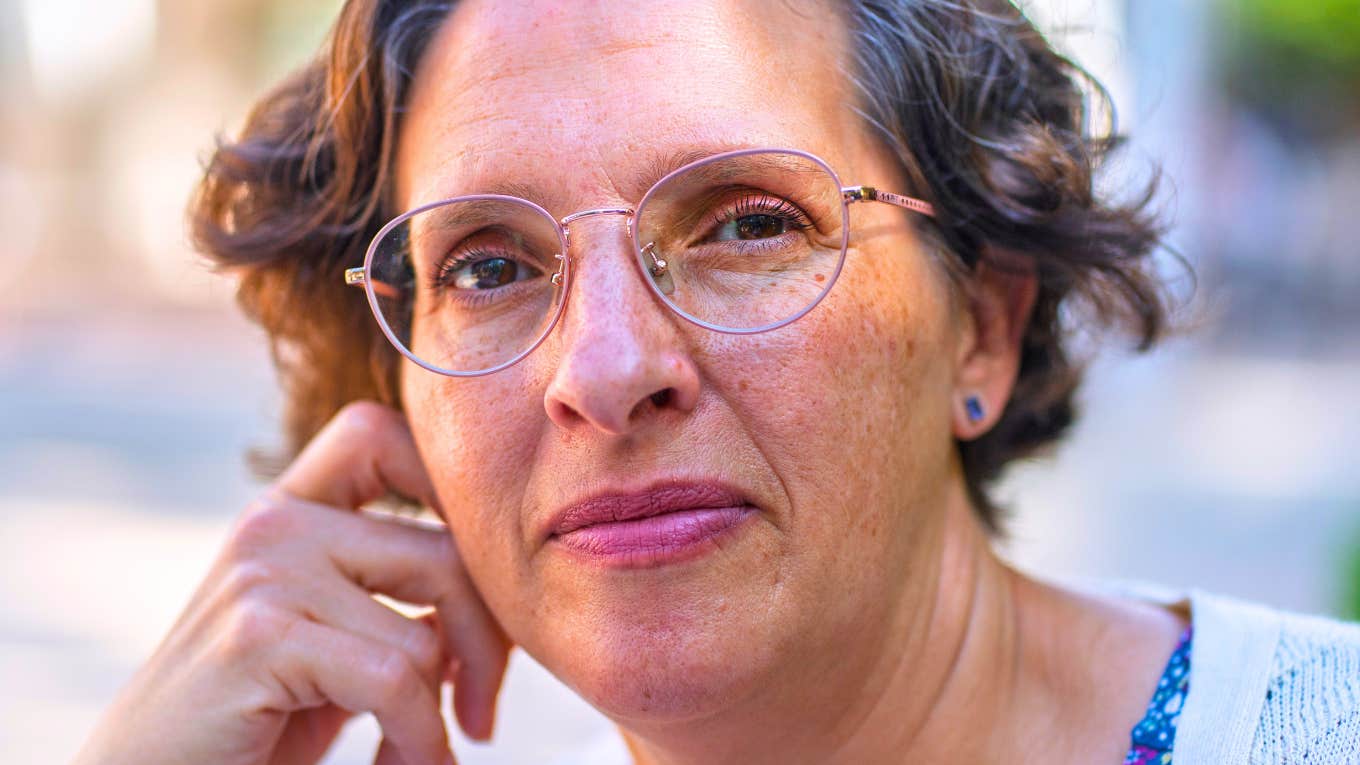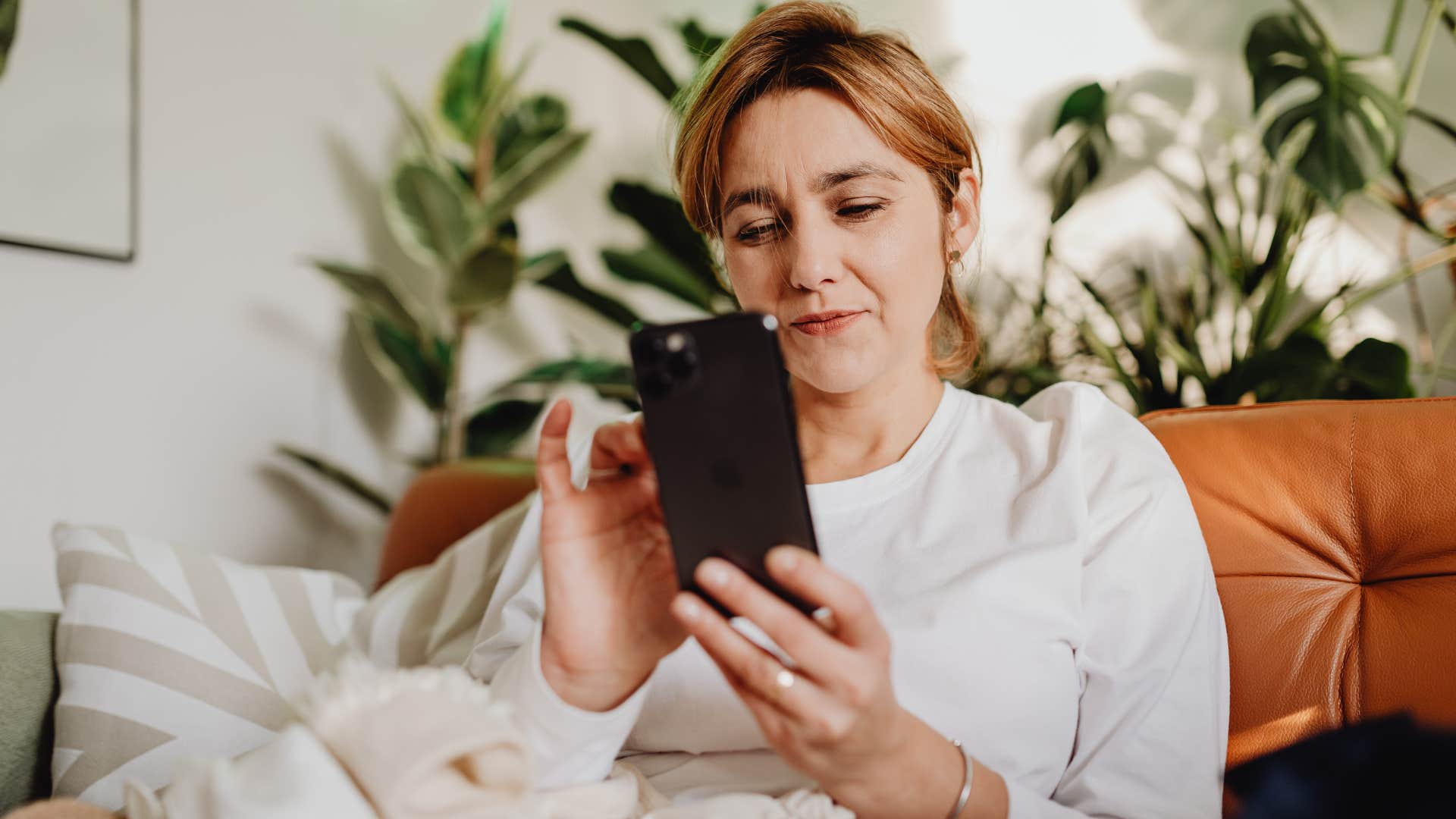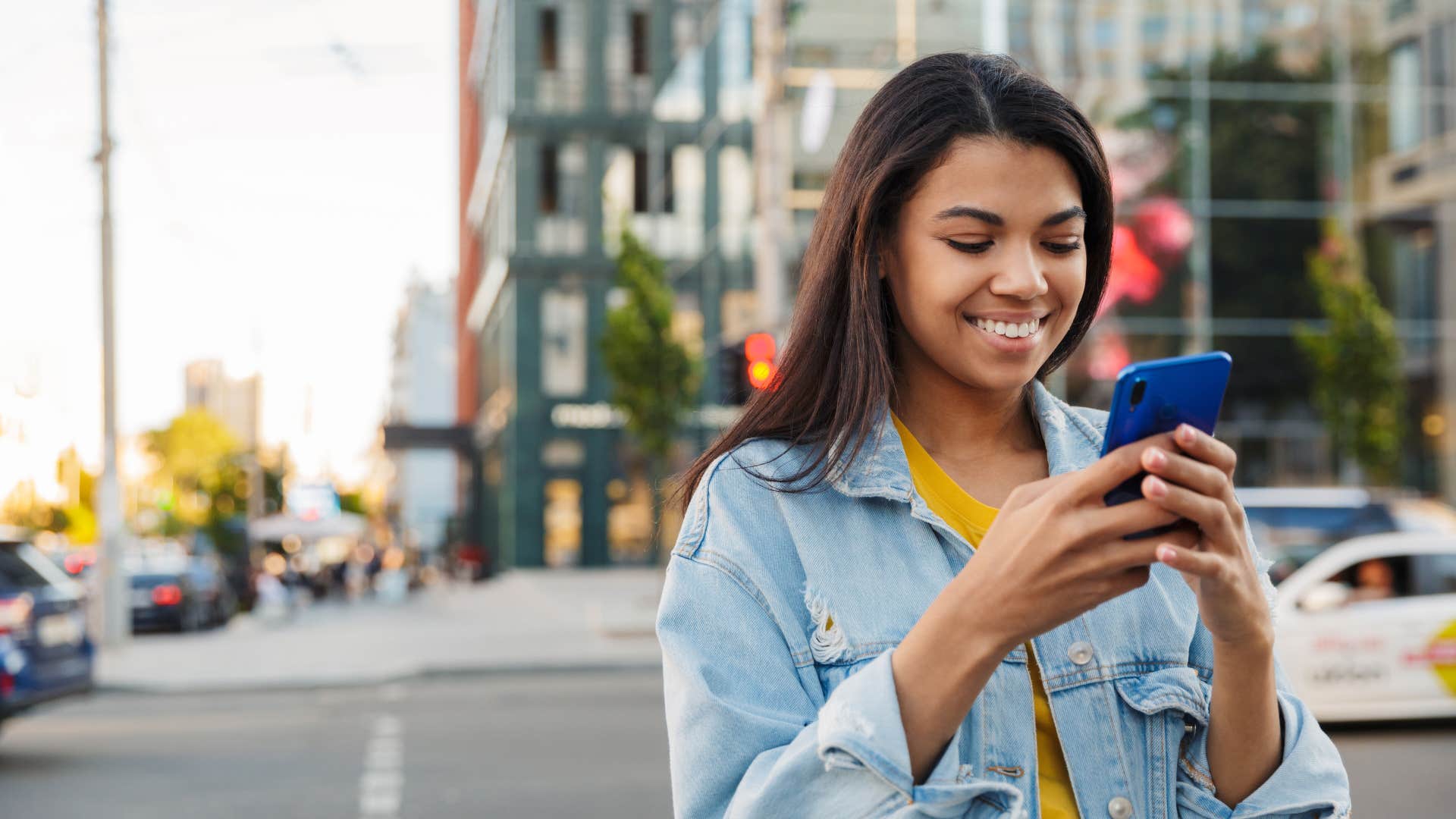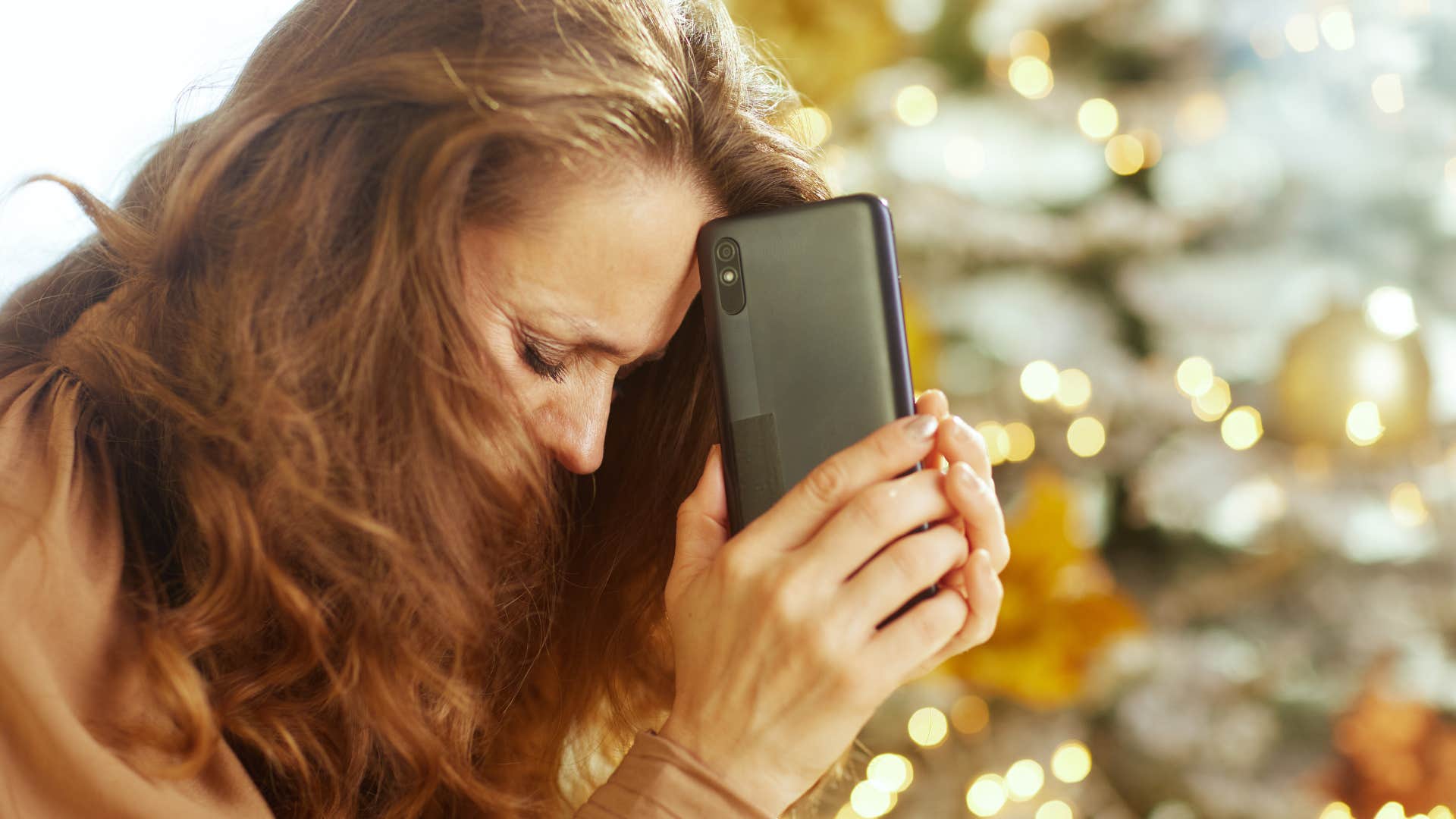People Who Never Post Photos Of Themselves As They Get Older Usually Have These 11 Deep Reasons
Putting yourself out there on social media can get more uncomfortable with age.
 Kyle Lee / Shutterstock
Kyle Lee / Shutterstock Many of us are used to making daily social media posts. Whether you’re updating your friends or family on your life via Facebook or sharing photos on your Instagram story, social media can become a routine. Younger people aren’t afraid to share their entire lives online. However, as people age, they become less and less likely to post regularly. Sometimes, they’ll choose to stop posting photos of themselves altogether.
Quitting social media can be positive for your mental health, psychologists have found. The amount of time we spend scrolling can be shocking. “On average, people spend over two hours on social media each day. So if you finally do decide to quit for good, you’ll have a lot more time on your hands,” says Clay Drinko, Ph.D. Some people who choose to never post photos of themselves online are doing so because they are living in the moment. At other times, the reason may be deeper. When someone stops sharing pictures online, they could have a reason that is important to them.
People who never post photos of themselves as they get older usually have these 11 deep reasons
1. They value their privacy
 Jacob Lund via Canva
Jacob Lund via Canva
I know when I was younger, I was obsessed with keeping everyone updated on my daily life online. I’d share selfies or photos with friends daily. It felt cool. However, as I’ve gotten older, I don’t feel as motivated to post photos of myself, especially while I’m performing my everyday routine.
Some people would rather live a more private life. They don’t want to share pictures of themselves online. The idea that their social media friends know what they’re up to every day freaks them out. They don’t want people seeing everything going on in their lives. They choose to keep their photos to themselves.
2. They aren’t seeking validation
 fizkes from Getty Images via Canva
fizkes from Getty Images via Canva
Years ago, I thrived on getting comments from people on the photos I posted online. When I was struggling with low self-esteem, it felt good to receive validation and compliments. As I got older, I stopped relying on the validation of others, and the number of selfies I shared decreased to zero. Many adults don’t need validation from people online, especially on their appearance.
Seeking validation online does not bring you happiness, psychologists have found. “ There is something a bit unsettling about the way social media networks are constantly trying to rate their users. How many people ‘liked' your post today?” says corporate consultant Beverly D. Flaxington. “Pressure to be socially accepted and celebrated can be too much to handle, and can adversely affect the self-esteem of many social media users.”
3. They’re uncomfortable with their appearance
 Karola G from Pexels via Canva
Karola G from Pexels via Canva
Our feelings about our appearance can often change. When someone is feeling down about their appearance, they may take a break from posting photos of themselves online. When you feel self-conscious, it’s hard to put yourself out there. You are afraid that people will notice your flaws.
We are our biggest critics. However, that doesn’t help us understand that people in our lives aren’t scrutinizing us as much. Most of the time, your friends and family will be happy to see your face pop up while scrolling. It’s still hard to put yourself out there when you are uncomfortable with your appearance. People who are feeling concerned about the way they look will never post photos of themselves online.
4. They fear being judged
 3ображення користувача Maksym Povozniuk via Canva
3ображення користувача Maksym Povozniuk via Canva
Let’s face it, people online can be cruel. When you post photos of yourself online, you can’t help but worry that those who follow you may judge you. They could be looking at your appearance or judging what hobbies you have. It can make social media users stop posting themselves entirely as they get older.
“The fear of judgment can be paralyzing,” says Jenna Rainey. “It can hinder our growth, stifle our creativity, and deter us from pursuing our dreams. But if we're constantly worried about what others think of us, we'll find ourselves living someone else's life instead of our own. Embracing authentic self-expression is the key to breaking free.”
Some people may feel comfortable working through their fear of judgment and post online again.
5. They don’t want to compare themselves to others
 Dean Drobot via Canva
Dean Drobot via Canva
Individuals with low self-esteem often struggle with social media usage. If they aren’t happy with the way they look, they can find themselves comparing their appearance with everyone else online. They’ll have a hard time posting photos of themselves when they scroll through and see social media models. Instead of putting them in a situation where they will be making unfair comparisons to themselves, they will not post at all.
It’s not just comparisons about looks that make people stop sharing photos of themselves online. People post their wins online. They may see their friends sharing photos of themselves after a big promotion at work or a life event like a wedding or having a baby. These things can make someone wonder why they haven’t reached those goals yet. Instead, they’ll stop posting out of fear that those around them may be comparing them and thinking they are falling behind.
6. They’re too busy
 Ridofranz from Getty Images Pro via Canva
Ridofranz from Getty Images Pro via Canva
When someone is going through a lot in life, taking and posting photos of themselves becomes less of a priority. Maybe they are busy with work or adjusting to life changes. Sometimes, people’s lives move so quickly that they can’t even think about pulling their phones out. They could also be purposely avoiding social media as they focus on something more important to them.
“There is a generational element to this sea change: millennials who grew up on social media are moving into middle age and perhaps seeking more privacy in their lives; once you’ve settled down with a partner and children, perhaps there’s less obvious incentive to project your personality online. ‘I think people are more suspicious of oversharing, generally, some of which is probably a useful and healthy correction from how much we were all sharing a decade ago,’ Emma Hulse, a thirtysomething lawyer acquaintance of mine, told me,” writes Kyle Chayka for The New Yorker.
7. They want to lower screen time
 Los Muertos Crew from Pexels via Canva
Los Muertos Crew from Pexels via Canva
Let’s be honest, it’s easy to get caught up in the thrill of scrolling. Screen time has become a serious issue for many people. Instead of socializing in person or devoting time to other hobbies, it’s not uncommon to fall into the doom-scrolling routine. People who choose to step away from posting photos of themselves may do so to force themselves off their phones and into something more meaningful.
I know when I post a photo of myself online, I get caught up in checking my notifications every few minutes. I want to see the likes and interactions. I hope to read kind comments from my friends. For those who are sick of being glued to their phone, they’ll stop posting photos of themselves to beat the urge to check their notifications.
8. They are protecting their digital footprint
 Jacob Lund via Canva
Jacob Lund via Canva
When we post online, we leave a digital footprint. The images we post do live on forever. Some people want to avoid the embarrassment of having photos of themselves lingering in the universe. For others, sharing photos of themselves and their kids can be a safety issue.
“Whenever you use the internet, you leave behind a trail of information known as your digital footprint. A digital footprint grows in many ways – for example, posting on social media, subscribing to a newsletter, leaving an online review, or shopping online,” says Kaspersky. “Sometimes, it’s not always obvious that you are contributing to your digital footprint. For example, websites can track your activity by installing cookies on your device, and apps can collate your data without you knowing it. Once you allow an organization to access your information, they could sell or share your data with third parties. Worse still, your personal information could be compromised as part of a data breach.”
9. Their priorities have changed
 Kzenon via Canva
Kzenon via Canva
When we are young, social media can be the focal point of our lives. We have less going on. We could have been in school or working retail, something that only took up a small amount of our time. We’d spend more time on social media to socialize. As we get older, our priorities shift. We become full-time employees, some of us get married and have children.
We can be so caught up in our new version of life that finding time to take out our phones to snap a selfie just feels silly. When other people are relying on you for things, social media presence becomes less of a concern. I know when I’m busy at work, I go most of the day without checking my phone. People who choose to stop posting photos online have other things going on.
10. They care more about who they are, not how they look
 Choreograph from Getty Images via Canva
Choreograph from Getty Images via Canva
People who never post photos of themselves as they get older care less about getting attention because of their looks. They care more about who they are as a person than their appearance. They are proud of their accomplishments. They prefer to post about intellectual things rather than self-centered selfies. They have grown past the need to receive compliments for their looks online.
These people have a deep reason. They have worked hard to become someone they are proud of. As a result, they are looking to reach people outside of the surface-level conversations about beauty and glamour.
11. They’ve had an identity shift
 Alliance Images from Alliance Images via Canva
Alliance Images from Alliance Images via Canva
People change. That’s life. For some, a shift in their identity can make them remove themselves from social media. Maybe they’ve had a change in their body or have moved into a more private career. They don’t always stop posting out of low confidence, though. Sure, their appearance changing might give them anxiety, but they are also in a deeper place in their life. They’d rather keep to themselves.
“In the curated pictures of our digital lives, where sunsets are filtered and milestones are meticulously staged, there’s a quiet person who never posts pictures. No carefully angled selfies, no photographic evidence of celebrations, no visual updates from life’s journey. In a hyper-connected world that often equates visibility with value and attention with affirmation, these people can seem almost invisible, perhaps even mysterious,” says M. 4rm Thoughts on Medium. “The common assumption might be that they are shy, disconnected, or simply lacking in content. However, psychology suggests a far more compelling narrative. This behavior is rarely random or deficient. Instead, it is frequently a conscious choice that reveals a profound depth of character, a particular kind of confidence, and a highly developed emotional intelligence.”
Haley Van Horn is a freelance writer with a master’s degree in Humanities, living in Los Angeles. Her focus includes entertainment and lifestyle stories.

